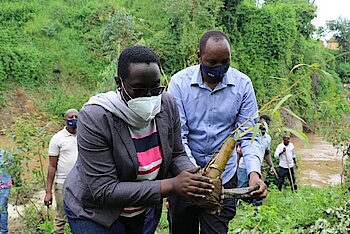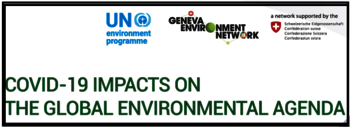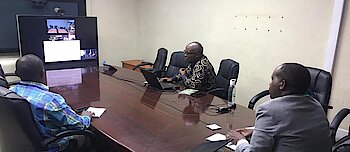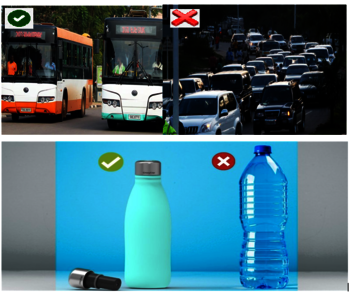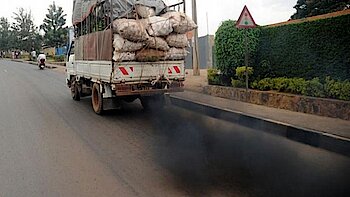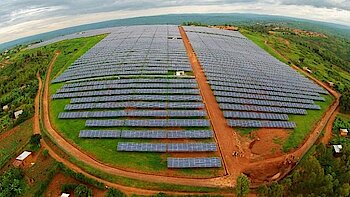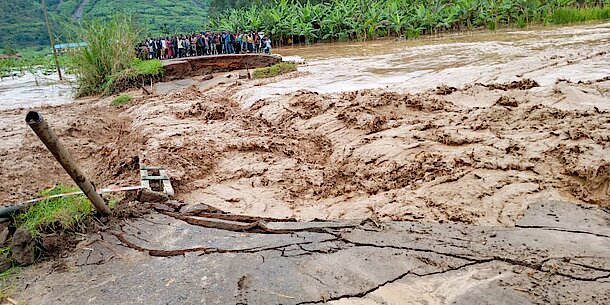
Essential things to know about the loss and damage due to climate change
The evidence of both global and local climate change impact is beyond dispute. There are clear effects of climate change occurring all across the planet. This includes unavoidable risks such as sea-level rise, desertification, and land degradation, while other direct consequences are heatwaves, floods, droughts, and other occurrences.
However, not all countries are equally impacted. There is no doubt that developing countries are mostly affected by climate change impacts; also referred to as loss and damage, and their capacity to deal with these effects is severely constrained due to the high cost and it is beyond their ability to adapt. This has led to an increase in calls for developed countries to compensate developing countries for the harm caused by climate change.
In fact, communities' abilities to avoid, prepare for, and manage with the impacts of climate change are actually hampered by a variety of capacities, experiences, and impediments. Imagine a village that has experienced a devastating flood, where a vulnerable population lives in slums with unsafe housing, a high population density, fragile infrastructures, limited access to essential services, higher proportionate costs of living, food insecurity, and increased health risks. Such a village will face a huge damage and loss from flood than any other community.
Some of the damage and loss could be the loss of human life, damage to property, destruction of crops, loss of livestock, non-functioning of infrastructure facilities and deterioration of health condition owing to waterborne diseases. There are also other associated impacts, such as the damage to infrastructure also causes long-term impacts, like the disruptions to clean water and electricity, transport, communication, education and health care. Sometimes, the damage and loss go beyond and destruct the fundamentals parts of history, identity, language and culture and lead to people migration. This truly indicate that the damages losses are irreversible.
Who is liable for these losses and damages?
This was a critical and controversial question during the climate negotiation from subsequent Conference of Parties (COPs) of the UNFCCC. This all started from the developed nations that have invented the combustion of engine, and they have benefited from burning fossil fuels. This was one key cause of temperature change due to increase of greenhouse gas emissions attributed to it. However, developed countries did not refer the loss and damage as a compensation issue. On other hand, the developing countries are the victim and in addition to this, their carbon footprint are small, such as Africa is responsible for only 4% of global emissions.
The losses and damages is important to be considered because it hampers the sustainable economic development of developing world. Therefore there is a need for resource to respond and rebuilt as developing countries are fighting for mitigation, adaptation as well as covering the cost of losses and damage from climate change induced impacts while their ability is very limited.
As a solution, COP27 delivered an historic outcome on the losses and damage fund, this decision taken in Egypt brings hope for the vulnerable impacted people and community for the global south that represent 80% of the world’s population and it is huge steps taken for climate justice.
What to be addressed under the losses and damage fund (LDF)?
As the losses and damage fund has been established, there is other steps to be taken to make it operational and fund mobilization start. The Loss and Damage Fund has great potential to alleviate the severe shocks due to climate change in vulnerable countries. LDF is an essential aspect for climate justice and it will help to address the geographic imbalance between the cause and effect of climate crisis.
However, for the fund to be effective, the root cause of climate change must be tackled and that involves reducing emissions.
More and more countries will experience the terrible effects of climate change unless emissions are dramatically cut. The world urgently needs to find more resources for mitigation, adaptation and loss and damage so that climate change will not erode humanity's chances to deliver on the sustainable development goals.
Topics
More posts
Rwanda’s NAP Project funded by GEF was launched
The Global Environment Facility (GEF)-funded $6 million project “Building the capacity of Rwanda’s government to advance the National Adaptation…
Rwanda Pledges emissions cut of 38% in its climate action plan by 2030
Rwanda as a signatory to the Paris Agreement under which countries are due to update or communicate their 2030 emission-reduction plans, it submitted…
The Geneva Environment Dialogues discussed the impacts of the COVID-19 on the global climate change agenda
The dialogues took place on Tuesday 19 May, 2020 from 9: 00 to 9:50 on Facebook live, as way of communicating in this time of COVID-19.
this session…
Assessment of Rwanda’s vulnerability to climate change was presented to local authorities
Rwanda Environment Management Authority (REMA), with the logistical support of Ministry of Local Government (MINALOC), hold a video conference with…
Coronavirus responses proves the World can act on Climate Change
The COVID-19 pandemic has provoked a global response unlike anything we have seen before. Governments have witnessed transformational changes that…
COP 26 postponed due to the disruption caused by COVID-19
This crucial climate summit is the 26th session of conference of Parties (COP26) to the UNFCCC and it was scheduled from 9-19 November 2020 in…
Be self-accountable to tackle Climate Change and save environment
Climate change has already begun to impact our planet in more ways than we can think. Temperatures continue to rise throughout the planet and we are…
Switching to electric vehicles is a mean to reduce greenhouse gases emissions and improve air quality in the City of Kigali
Over the last 150 years, human activities have greatly contributed to the increase of greenhouse gases in the atmosphere, which make the planet…
Green Growth as an Opportunity for Business
Twenty-eight years after the Rio Summit, the countries embrace the vision for development by expanding the economy and addressing the environment…
